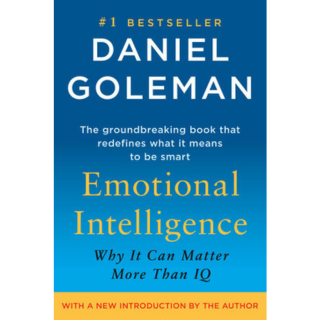1. Work Your Left Cortex
The more we understand and are able to manage our feelings, the more we're able to understand ourselves and deal with others. So, not surprisingly, emotionally intelligent people are pretty good at self-awareness and self-regulation. But with those two qualities often comes an unexpected bonus: happiness. Think of it this way, we each have an emotional setpoint, a brain-based range of daily feelings. Research by Richard Davidson at the
University of Wisconsin's Center for Healthy Minds found that when we are upset, depressed, worried and the like, there is high activity in the right side of the prefrontal cortex, the brain area just behind the forehead. When we are in an upbeat, energetic, exhilarated mood, the right frontal area quiets and the left side perks up. The ratio of left-to-right activity predicts our usual mood range.
Most of us are somewhere in the middle—we have our good days and our bad ones. Some people, tipped far to the right, are likely to be seriously depressed or constantly anxious. Others, far to the left, are most always upbeat, bouncing back immediately from life's setbacks. But we can shift our emotional set point in a positive direction. For example, when stressed-out bio-tech workers were given eight weeks of mindful breath and yoga training, practicing just a half-hour a day (using the techniques of mindfulness expert
Jon Kabat-Zinn), they were able to shift their emotional setpoint from the overwhelmed right back toward the easygoing left, Davidson found. One employee said the method helped her notice the worried thoughts that kept her in stress overdrive, and she remembered to note those thoughts and let them go instead of being driven by them. Mindfulness—which increased her self-awareness and emotional intelligence—also helped her remember what she liked about her job. Which begs the question: What do you want to like again?
2. Wish Strangers Well
Empathy—knowing what other people are feeling without their telling you—is also a key characteristic of emotionally intelligent people. They usually have a rapport or "chemistry" with others and, as such, have more satisfying moments when they feel a positive connection.
As research by Tania Singer at Germany's Max Planck Institute revealed, there are three varieties of empathy, each based on different brain circuits. Cognitive empathy lets us know how someone thinks about things, so we can take their perspective. Emotional empathy means we feel along with what they are feeling, which builds chemistry and rapport. And empathic concern means we care about that person. This caring empathy builds on the mammalian brain's circuitry for parenting—it's the love a parent feels for her child. This gives us a preset circle of love for those closest to us, our family and friends.
When the Dalai Lama and I were working together, he talked about methods to expand that circle of caring and concern to include people we know but don't yet have those intimate feelings for. There are systematic ways to do this, such as a daily practice of wishing well-being—safety, health, happiness, ease in life—for ourselves, then for our friends and family, then for people we know and then for strangers. As Davidson's research at the University of Wisconsin also found, when people concentrate on wishing others well, they enhance the activity of their brains' circuits for happiness. Compassion doesn't just make us better people—it makes us feel good.
3. Talk Back
Emotionally intelligent people tend be self-aware and that awareness is a surprisingly powerful tool for maintaining higher levels of happiness. How? It's not the circumstances of our lives that make us happy or unhappy, but what we tell ourselves. Self-awareness lets us track our self-talk, that silent monologue that goes on in our heads all day. As cognitive therapists know, catching negative thinking—self-pity, self-put-downs, self-criticisms—is the first step toward a happier state of mind. Once we notice those thoughts, we have the chance to talk back to them; remind ourselves of our strengths, our triumphs, whatever realistic thought will squelch those upsetting ones. In fact, researchers at Oxford University found that people with chronic, untreatable depression were half as likely to have a relapse if they combined mindfulness with cognitive therapy, which lets them talk back to negative thinking. For example, if your mind tells you, "You're a failure," and you just go along with that thought, you'll feel depressed. But with cognitive therapy, you can remind yourself of all the things you've done that have gone well—helping to undo the power of that negativity.

Daniel Goleman is the author of A Emotional Intelligence: Why It Can Matter More Than IQ, The Brain and Emotional Intelligence: New Insights, and many other books. You can find out more about him at DanielGoleman.info.





